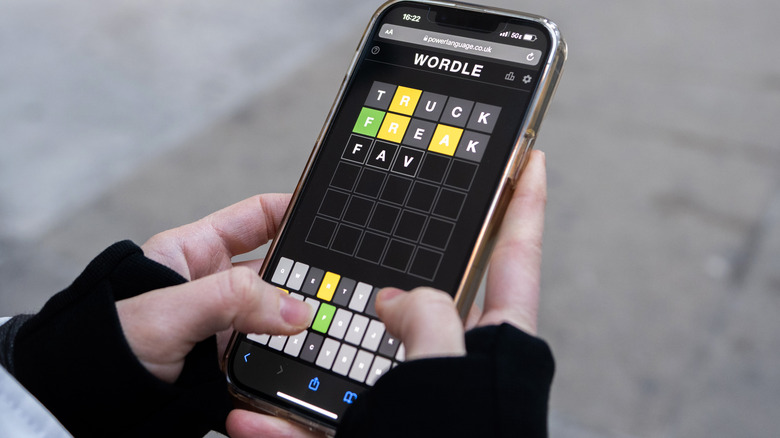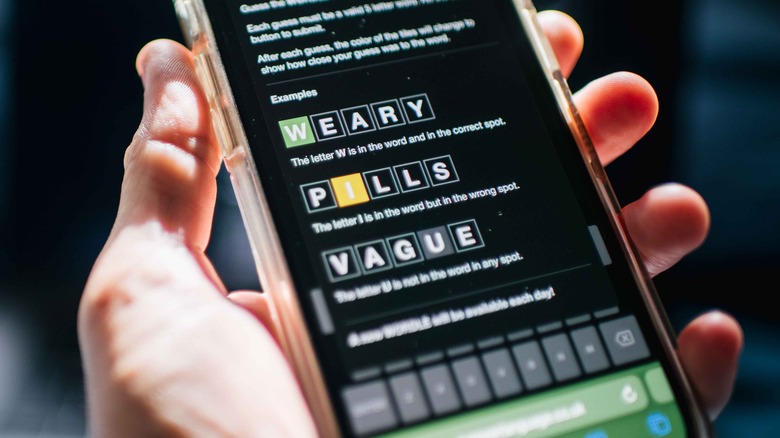Why The New York Times Has Wordle Fans Worried
Only a few weeks after the free online word puzzle game, Wordle, took the internet by storm, it has been purchased by the New York Times for a price "in the low seven figures." The simple puzzle game allows players to six guesses to figure out a five-letter word once a day. Players' guesses would be tracked and could be shared on social media, like Twitter, in the form of different colored squares. According to a New York Times press release, it acquired the game — which has reached millions of players since blowing up in early January — to help improve the offerings of its subscription, which it hopes to grow to 10 million by 2025.
In a statement on Twitter, Wordle creator Josh Wardle stated that the success has been a bit overwhelming for him, especially since Wordle was originally only intended for "an audience of 1." He said the game was inspired by games in the New York Times, so this felt like a natural evolution for him. So far, Wordle has been a free game with no ads, but it seems like that might soon change. While Wardle said the game would remain free once it moves over to the New York Times, the newspaper company said it would "initially" be free to new and current players, which seems to imply that it could be paywalled in the future. Needless to say, fans have some thoughts on the future of the beloved puzzle game.
Fan reactions to the New York Times buying Wordle
Despite a high number of Wordle clones attempting to invade app stores, fans of the game really only want to play the original version. Fans are not happy about the sale of Wordle to the New York Times because many believe it is only a matter of time until the game becomes part of its subscription service and stops being free. One fan on Twitter wrote, "Josh I love you (and Wordle) so much but we all know that the New York Times is going to destroy everything that made your game pure and great (free of adverts, paywalls, sign ins, tracking, etc.)"
Some fans are happy that Wardle himself is at least getting paid a high amount for his game, even if they feel its time is now over. Others seem more sad than angry about the sale, noting that while they enjoy the game, it isn't enough to get them to subscribe to the New York Times. While the game will remain free for now, it seems unlikely that the company paid seven figures to keep it that way.


